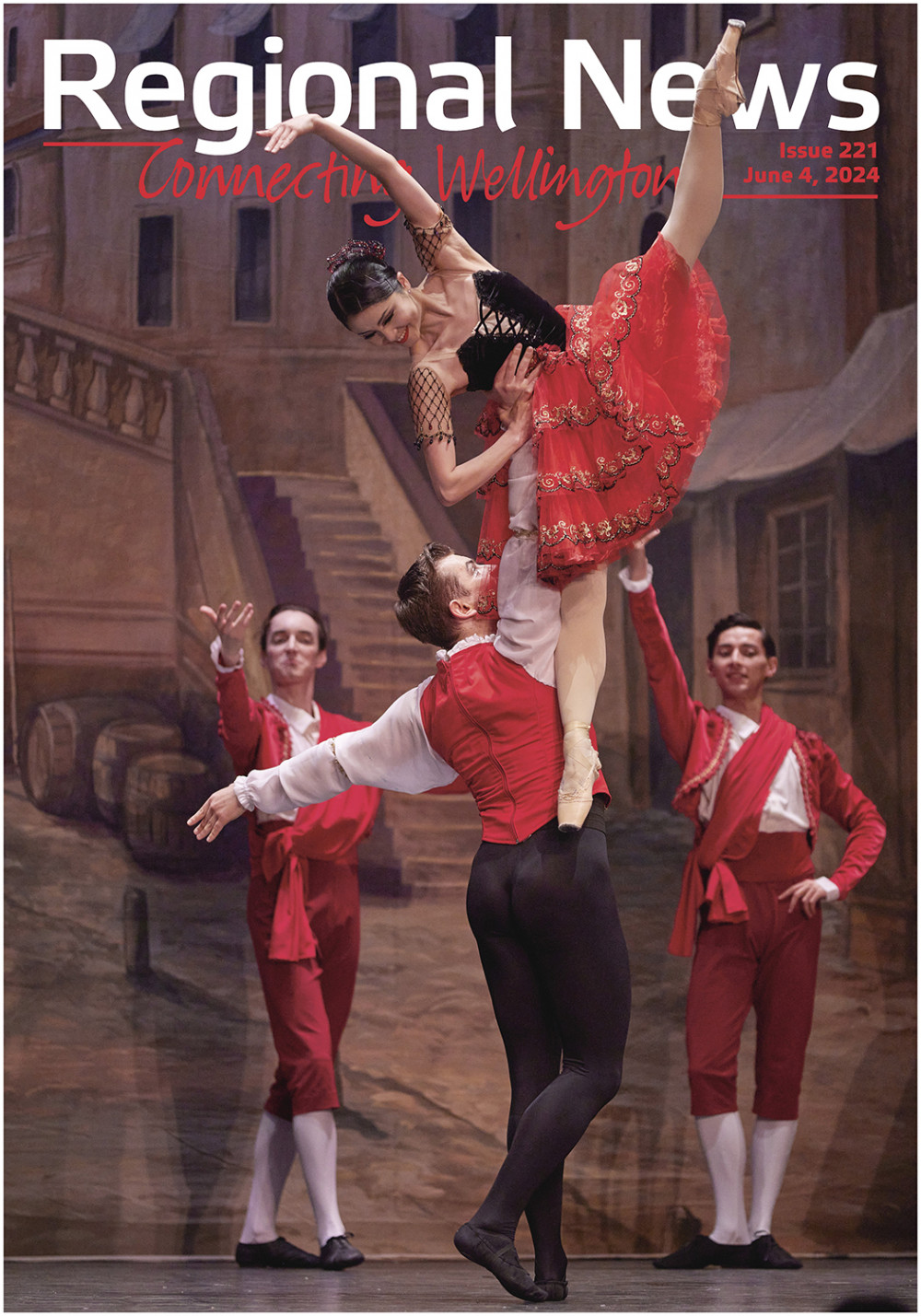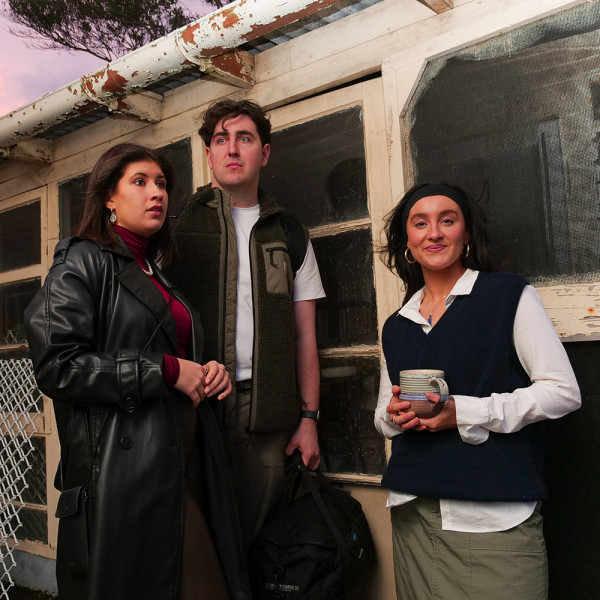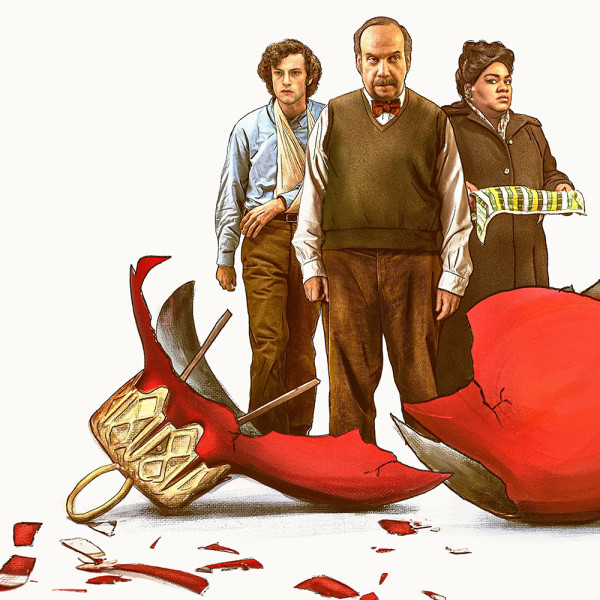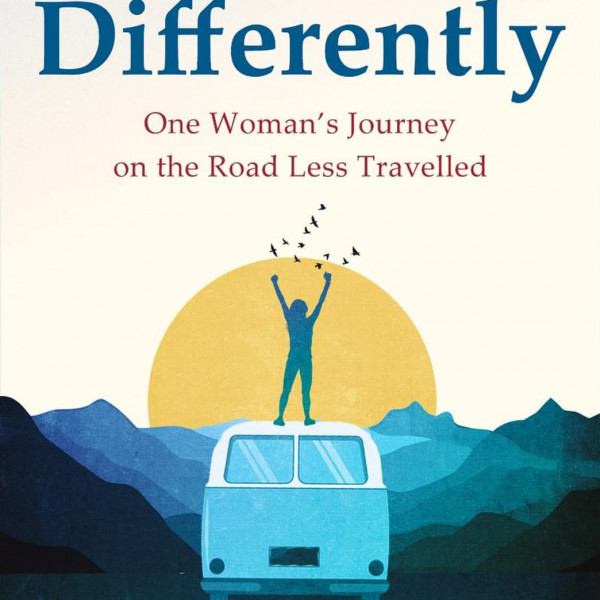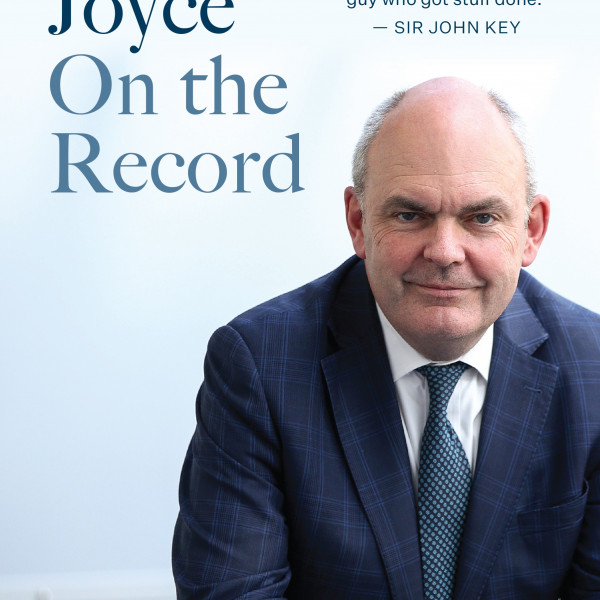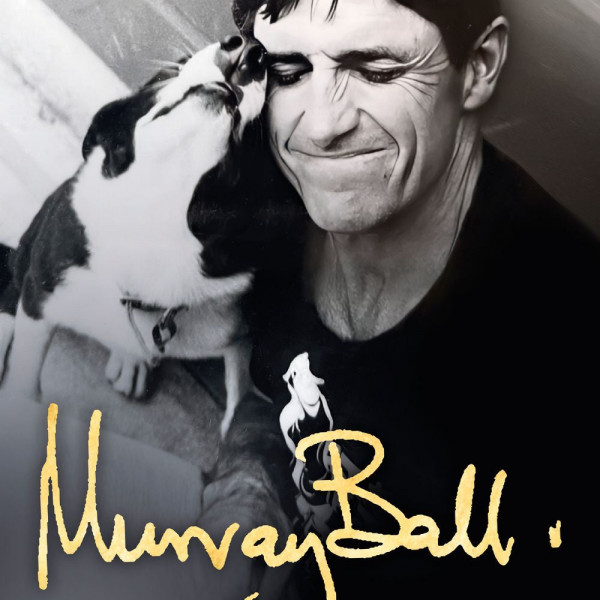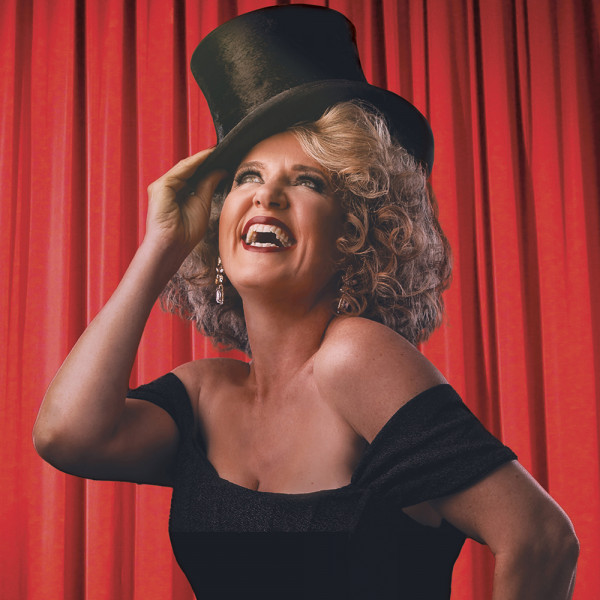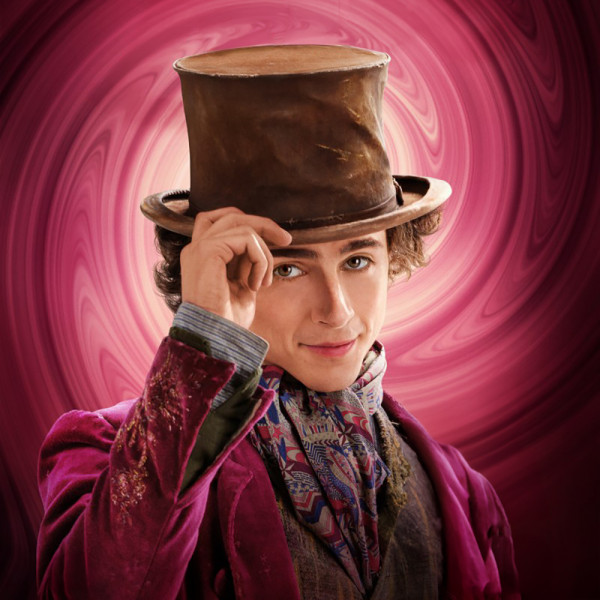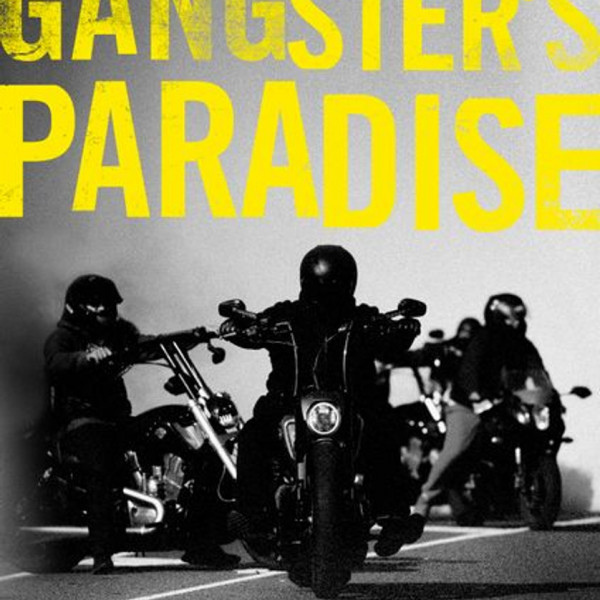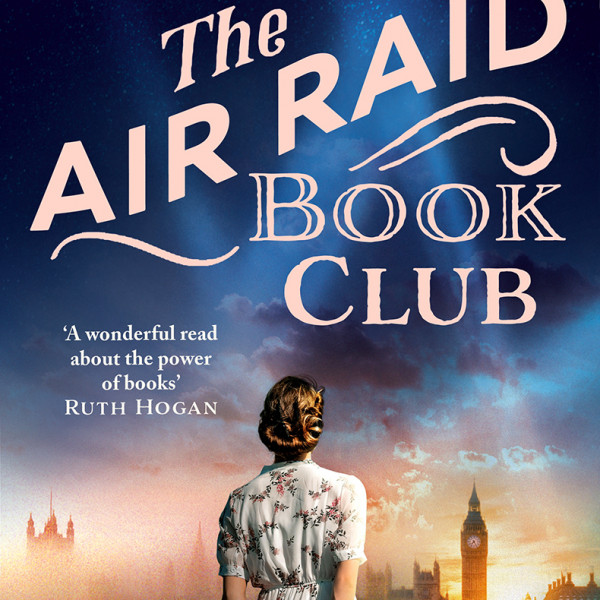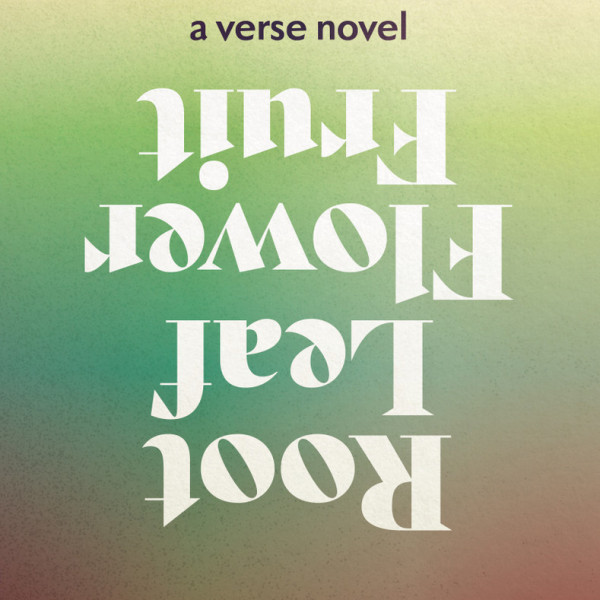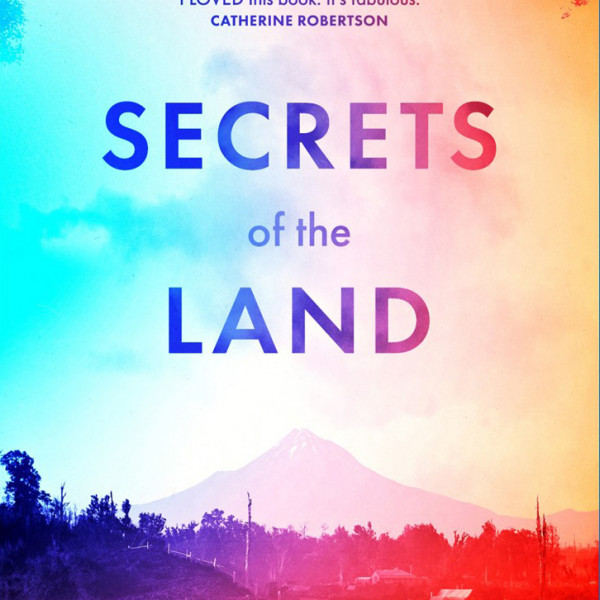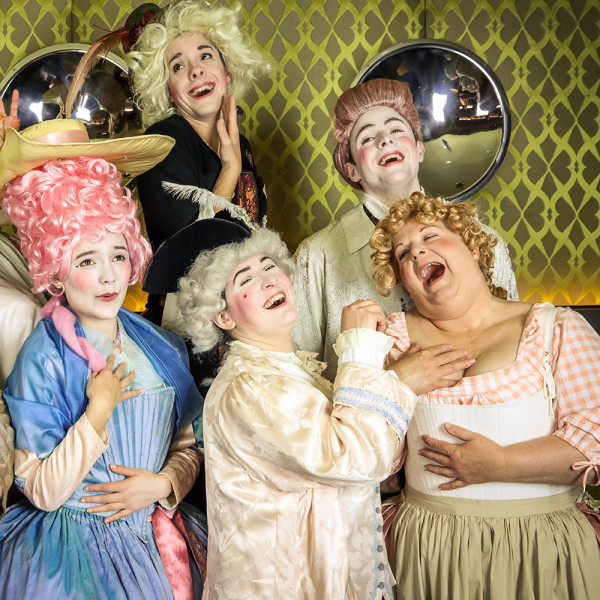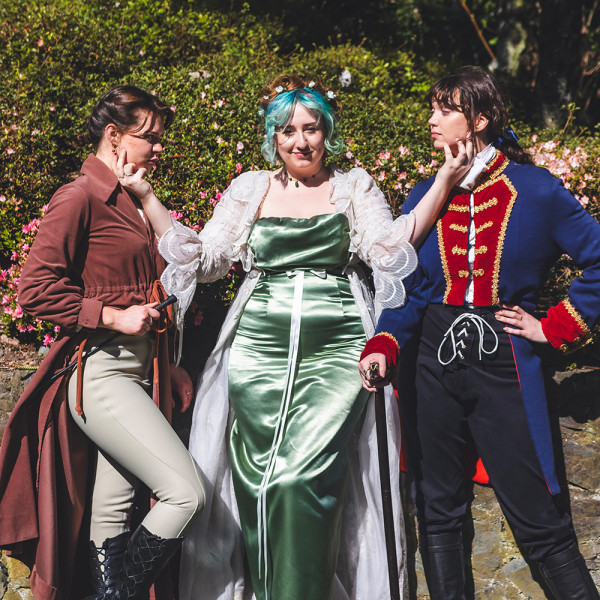
Goody Goody Glam Pop
Written by: Bethany Miller and Logan Hunt
Circus Bar, 19th Feb 2024
Reviewed by: Tanya Piejus
Celebrity YouTuber Lisa Spector (Megan Connolly) invites you to an intimate, exclusive VIP talk show for glamorous pop icon, Miss Goody Two Shoes herself, Brooklyn Brooklyn (Bethany Miller). Fresh from her world-smashing comeback tour, the tabloid darling is live and unplugged as she ruminates on her career path from former Disney starlet to chart-topping pop queen.
Sound familiar? It should be, as the premise leans heavily on the story of Miley Cyrus. However, all is not entirely what it seems as our star originally comes from Brooklyn, Wellington, and her teen rebellion is revealed to have been super-prudent and devoid of the sex, drugs, and rock ‘n’ roll phase Cyrus went through. Just when the saccharine is hitting the max, there’s another cunning twist as uber fan girl Lisa Spector also turns out not to be what she at first seems.
Both performers carry off their roles with comedic aplomb and Miller particularly glows as the too-good-to-be-true, vainglorious Brooklyn. The pivot that raises this diamond of a show above the usual is the songwriting of Logan Hunt. His Tim Minchin-esque lyrics are brilliant and Miller’s performance of them a delight as she parodies the breathy, pouting sincerity of so many young popsters. The songs Breathless and No FOMO are genius and the line “I keep missing U” has me laughing far louder than I should in such a small venue.
Despite the minimal staging, this creative team pay attention to detail with a strong pink motif running through the two chairs, table coverings, and the wardrobe of both performers and superb guitarist Peter Liley in his ‘I am Kenough’ Barbie hoodie. There’s even a blush of pink from the Circus Bar’s LED lighting fixtures (Lucy Gray).
One iconic pop star. One totally chill, normal fan. Yeah, right! Turning the world of celebrity and its gossip-hungry fans on its head, Goody Goody Glam Pop is a fresh new work by a fresh young team. Long may its star shine bright.



